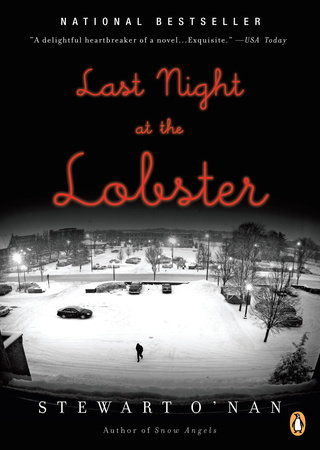Last Night at the Lobster - #396

What is Red Lobster?
Most recently, it seems that Red Lobster has become the sort of business failure into which you can read your views about capitalism, whatever they are. Take, for example, the Times piece below: the company suffered from both insufficient profits and the overweening pursuit of profit; their menu both got too pricey and the endless shrimp was too good of a deal; successive owners with opposite strategies were to blame for everything. As an example of the opposite, aside from the agreement on unlimited shrimp being a sort of firesale death knell, the Journal has a more uplifting tale of the latest owner's designated CEO. These private equity types have nobly collected the chain out of bankruptcy and have installed a wonder kid as CEO. (You can almost hear the narrator step in, "what could go wrong?")
For journalists, niftily, the people interviewed will almost always blame somebody other than them. Of course, like any abysmal failure, almost anything can be pointed to as causal and, in reality, almost everything contributes.
As I read these stories, what came to my mind was a wakeup call from about ten years ago. It's easy for an east coaster like me to overlook Red Lobster. Why go to the mall for your seafood when you can go to an old shack on the pier? Why go out for seafood at all when you can call up the lobsterman and he'll stop by this afternoon with a few in a Walmart bag? I would drive past Red Lobster and have about the same chuckle at the D'Angelo lobster roll. Like I said, ten years ago, this flavor of elitism got stopped in its tracks. You see, I picked up Stewart O'Nan's book Last Night at the Lobster from Capitol Hill Books.
A big beef I have with literary fiction is that the authors know their audiences. Too many of the stories revolve around the literary trade, the professoriate, and upper class concerns. There's even a curious sameness to recently published historical fiction: somehow all of today's concerns and social views are easily found in the 1930s or 1530s. Another example is the recent trend of setting the protagonists as specifically the people who read and antagonists as the people who either generally won't or don't read, or more specifically ban or burn books. It makes what is often well-written literature come across as fan service.
In Last Night, O'Nan gives us the precise opposite. His characters are precisely the people you'd find working in quick service restaurants, and he almost completely avoids the upper crust urge to sniff at them. Manny DeLeon, the restaurant manager, isn't some sad fellow in a "dead-end job." He's doing what he wants to do and has aspirations of making a life out of it. There's not a college scholarship and a next life as a soft-handed, white-collar worker in the future: he's dignified doing exactly what he's doing, although hopefully doing it better so HQ doesn't close his next restaurant, too. While the waitstaff and line cooks are a motlier crew, some of whom are biding their time before college or real life can reengage, they also aren't painted as people trapped in a lower class life working at a lower priced chain. They're people whom O'Nan honors.
In reading the book, I felt O'Nan demanding that I honor them, too. My Red Lobster snobbery is akin to the people who mock Olive Garden's Italian food. To them, it's not good. They're probably right: a richer man's Italian food is probably better; a rich man's seafood sure is. But the people who take their families to Olive Garden and their dates to Red Lobster show us that our snobbery is wrong.
Reading
 The 35-Year-Old CEO Plotting Red Lobster’s Comeback
The 35-Year-Old CEO Plotting Red Lobster’s Comeback
The former P.F. Chang’s leader promises better service, food and interiors, but no more $20 unlimited shrimp on the standard menu.
 Greed, Gluttony and the Crackup of Red Lobster
Greed, Gluttony and the Crackup of Red Lobster
How missed opportunities, a $1.5 billion real estate deal, all-you-can-eat shrimp and the global pandemic sank the country’s largest seafood chain.
 Last Night at the Lobster
Last Night at the Lobster
Perched in the far corner of a run-down New England mall, the Red Lobster hasn’t been making its numbers and headquarters has pulled the plug. But manager Manny DeLeon still needs to navigate a tricky last shift.
Stewart O'Nan